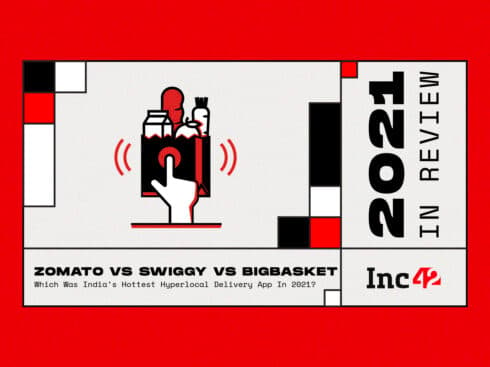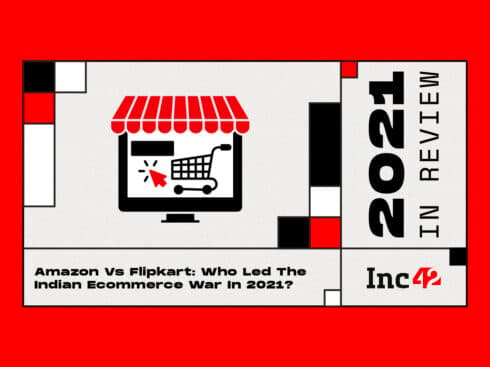“At the stroke of midnight hour, when the world sleeps, India will awake to life and freedom. A moment comes which comes but rarely in history, when we step out from the old to the new, then an age ends, and when the soul of a nation, long suppressed, finds utterance.”
Seventy years earlier, the first Prime Minister of an independent India spoke these famous words, aptly titled “Tryst with destiny.”
Today, with PM Narendra Modi’s announcement of demonetising the INR 500 and INR 1000 currency notes, India’s tryst with a new kind of destiny has heralded – a tryst which could rewrite the very financial ecosystem of a nation, beginning from midnight today.
We look at the possible repercussions the Indian Startup ecosystem will face due to the perceived changes that are to come of this move in the near future.
The Obvious – Alternatives To Cash To Get A Massive Boost
The biggest winners to come out of the unfolding news include fintech startups providing wallet services – Paytm, Mobikwik, My Airtel, Oxigen, PayUMoney, Freecharge, Mobikwik, Momoe etc. The boost will also encompass established financial services providers who have joined the online wallet bandwagon including SBI Buddy, Citi Masterpass, ICICI Pockets, HDFC PayZapp/Chillr, Axis Lime among others. The market has just expanded for these players – they would most certainly expect a slew of new unique users along with a massive boost from existing users.
The demonetisation is a huge spurt for moving towards a cashless economy. Changing user habits to welcome the technological change was always a tough task for wallet players, but such a unique situation will provide them with an unprecedented opportunity to modify consumer behaviour and make them feel more comfortable with using online wallets.
Prominent angel investor Ajeet Khurana, Advisor at Kalaari Capital explained how the decision will have major repercussions for the state of the economy and more importantly – the fintech startups. According to Ajeet: the repercussions felt will be that assets which are currency equivalent will appreciate for instance the US Dollar/Rupee conversion rate. Secondly, the state of economy will be majorly affected – expect major chaos in the short-term which might continue into the next month as well but overall it is an extremely positive step in the long-term for the economy.
He did state that, “As far as startups are concerned, they are funded primarily by white money. This step will make available a larger pool of white money, hence funding will receive a boost. Thirdly, fintech startups like payment wallets, gateways even cryptocurrencies like bitcoin will see a major up sell with this step.”
No wonder, some fintech players have hailed the decision in their immediate Twitter reactions.
We have got two words for you: Paytm Karo.
— Paytm (@Paytm) November 8, 2016
Our PM has played the TRUMP card, poori India HILLARY hai!#GoCashless #GoMobiKwik #Currency
— MobiKwik (@MobiKwik) November 8, 2016
Breaking News: ATMs & Banks are shut down for 2 days!
Not So Breaking News: Oxigen Wallet #KaamAayega!Download now https://t.co/4roGlYUfUr pic.twitter.com/wtUR7Upqi3
— Oxigen Wallet (@oxigenwallet) November 8, 2016
Great Move! Trash the Cash-Just Freecharge #Freechargenotcash
— FreeCharge (@FreeCharge) November 8, 2016
Move Towards A Cashless Economy
Jitendra Gupta, co-founder of CitrusPay stated, “Suddenly, digital payments will be the defacto payment mode. The biggest payment method which is cash has been killed within one stroke by PM. We will see golden age for digital payments now in coming years.”
Bipin Preet Singh, Founder CEO at MobiKwik in agreeing with Jitendra added, “ There is already a state of panic – average Indians are freaking out as their money in 500s and 1,000s is very soon going to be useless. They are figuring out what to buy or how to exchange it in a bank. Further, there are limits on cash withdrawal also for the next 50 days – so millions of Indians who never adopted digital payments are now scrambling to figure out how to use a mobile wallet or a debit card for daily life transactions. For retailers, it’s no different. All their hesitation for card/wallet acceptance will now disappear as they will be forced to declare all their income by depositing cash in bank. This will aid the death of cash on delivery for ecommerce.”
Did you know that @MobiKwik is the only mobile wallet in India which has cash pickup at your doorstep service? #BlackMoney #500 & 1000 Rs
— Upasana Taku (@UpasanaTaku) November 8, 2016
He also shared some figures – namely that Indian users do a trillion US dollars worth of payments annually, of which more than 90% are in cash. And that MobiKwik was trending to process $1 Bn of payments in 2017. With this policy change, they expect a 10X impact.
An optimistic Nikesh Arora, former CEO of Softbank went on to post –
Brilliant move. Today might end up being the biggest retail sales day in India! Definitely biggest ATM transaction night! https://t.co/teNejPBLta
— Nikesh Arora (@nikesharora) November 8, 2016
From Cash To Cryptocurrency
The founder of Trestor Infotech Private Limited (which issues “Trests”- a blockchain based secure, digital, store of value – similar to bitcoins), Kunal Dixit stated, “Within the last few hours, Trestor team has been bombarded with calls from people who would like to purchase Trests with their 500 and 1,000 Rupee notes. I will be writing a mail to RBI to give us guidance as to how we should approach such a sudden interest. Digital tokens are unregulated in India and RBI hasn’t come out with a clear guidance yet. As a precautionary measure, and to support our Prime Minister’s vision, Trestor has decided to self-regulate until we get any further clarity from the regulators.”
Sathvik Vishwanath, CEO and Co-Founder, Unocoin, the bitcoin trading platform in India, had a more sombre opinion than most. He said that the intentions are good but very difficult to achieve and that if going cashless is the only way forward, certainly the bitcoin which is borderless, trustless, and transparent currency makes more sense.
Product Council Chairman of NASSCOM, Ravi Gururaj made an entertaining remark in a post, “Crooks across the nation will sweat bullets this evening! I suspect those same crooks will now catapult the “Dummy’s Guide to Bitcoins” to the bestsellers list by tomorrow!”
Implications Of Demonetisation And Discounting Black Money
With the reduction in black money, an NDTV report claims that the Rupee may see a huge appreciation in its value, potentially reaching 58/Dollar if even 50% of the Black Money is returned to the economy. This will imply a boost to importers of products and services. Hardware manufacturers importing from China could see a potential upturn. Another advantage would be the shot in the arm to foreign investors looking to enter the Indian startup funding bazaar as they get more bang per buck.
However, the disadvantages of a Rupee appreciation for startups far outweigh the overall benefits. Most exporters of products and services will earn lesser on the same products they sell. Companies like Freshdesk, Appointy, Grey Orange will need to reconsider their financial strategies to weather the oncoming storm.
Ancillary Services Providers In The Financial Domain To Also Get A Shot in the arm
Amit Sachdev, the Co-founder and CEO of online loan disbursement platform CoinTribe also echoed similar views. He stated, “While this will have several significant benefits for the economy in the long term, there is likely to be a negative impact on sectors with high cash economy in the immediate term. With liquidity drying up, both NPA and demand for working capital credit are likely to go up. In view of banks’ ongoing NPA issues, how fast will banks react to this situation will be interesting to watch. With limited tax arbitrage between the organised and unorganized segments, India will see a much sharper move from unorganized to organised segment.”
In the long-term, though, this is likely to drive several benefits for the economy. India has made the first move from a cash-first economy to a digital economy. Larger amount of savings and cash will find a way into the mainstream economy and be deployed for physical and financial asset creation. Use of digital currency will pave the way for a faster evolution of fintech companies in India especially in transactions and Online lending space.”
People with unaccounted wealth have very few options before them now. The Income Declaration Scheme 2016 ended on 30 September, 2016. People could have utilised that opportunity to pay 45% and get into the safe zone. Now they won’t be able to do anything. The Prime Minister had repeatedly warned people to come clean under the scheme and exhorted them to pay tax. We can expect a sharp rise in demand for physical gold and jewellery as panic-stricken people with black money try to convert their unaccounted wealth into gold. Startups like Bluestone, Caratlane and others will get a power boost in the coming times.
The other option before them is to declare the wealth now and pay up to 60% tax (30% income tax and minimum 100% of that as penalty). The downside is that under the IDS 2016, they would have paid only 45% tax and no questions asked. Now they will have to answer a lot of questions and pay a higher tax. Even then, there is no immunity from prosecution. This would also bring in a plethora of customers wanting to do better tax planning giving startups like TaxSmile, Quicko, RTINation, and Tax2win a bigger arena to make their place in the market.
Wallet collaborators too will make merry with this development. Ecommerce, hyperlocal, cab aggregators, food delivery services and many others like them that provide and encourage online payment using wallets will face a tide of incoming orders that will be swept away from traditional retailers only dealing in hard cash.
*ahem* pic.twitter.com/UExe649wIn
— Zomato India (@ZomatoIN) November 8, 2016
Bhavish Aggarwal, Co-founder & CEO, Ola stated, “We welcome this landmark move by the Hon’ble Prime Minister. As a nation, this is our first major step towards bringing convenience and transparency for every Indian. This move is integral in realising our shared vision of a Digital India.”
The Push To Digital Economy And UPI
In a move designed to make cashless payments in India a reality, former RBI Governor Raghuram Rajan had unveiled UPI (Unified Payment Interface). With PM Modi’s masterstroke and the inevitable push to digital transactions, no wonder UPI will have a major part to play as a digitalisation accelerator.
Priti Shah, founder of omnichannel payment transactions solution Paynear also reiterated that the move is going to accelerate digital payments and fearlessly merchants can adopt digital payment mechanism especially with the UPI push. She stated, “Fintech startups like us will help to digitise India and play a big role in empowering electronic payments. As digital money transactions will increase, fintech companies will enable this option too along with cards as UPI is a big alternative and best method to transact electronically.”
#UPI today has 27 banks live on the platform. If you have an android phone, you can send or receive money to anyone, anytime! Pls RT! pic.twitter.com/RgZho6shix
— IndiaStack (@India_Stack) November 8, 2016
The future remains unpredictable and may have unforeseen challenges. However, we remain optimistic with all the positive sentiments pouring in for what might be the boldest move from this government to date.
[Contributing Writers: Yash Baid, Shweta Modgil. Edited by: Yash Baid, Pooja Sareen]
































 Ad-lite browsing experience
Ad-lite browsing experience